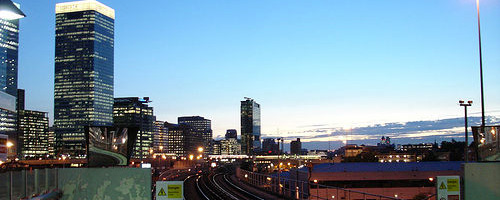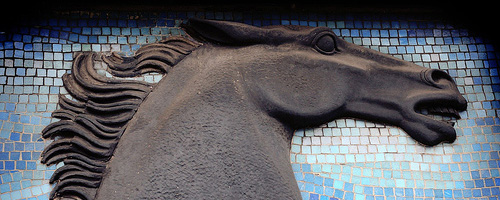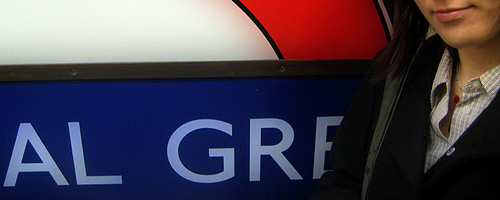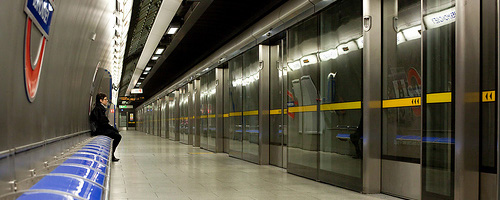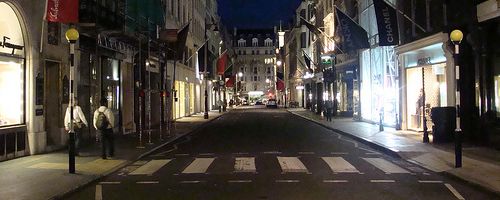
Picture by Dan Cunningham: Bond Street by night
Tavistock has the sunglasses and the heavy coat of a man who enjoys his job, but the sunglasses are there to hide his tears. He bought the coat one Sunday afternoon, hoping to supplement his thin skin; it works, a little, when he’s on a good shift.
This isn’t a good shift. When he parked outside the station he wasn’t prepared for just how bad it would turn out to be. The busy shopping streets can always be hard, but it’s three in the morning, empty streets and cloudy sky. He was expecting a quiet night. Instead, it’s the worst he’s seen for months: a Mongoose, a Merlin, a couple of mountain bikes that should never have been brought into the city in the first place. And behind them, nestling behind a protective Litespeed, there’s a tricycle. Not again, Tavistock thinks, chest hollowing out; please, not again, not tonight. The tricycles are always the worst.
He cuts the bike locks slowly, walking each new prisoner back to the van on its own, gripping the handlebars firmly but never too tight. The delays buy him nothing except the chance of harsh words from Ludgate when he gets back to base. As he works his way down the lamp-posts there’s no reprieve, no harried owners running up at the last minute. Just the burr of occasional cars, ther headlights casting strange shadows through the spokes of the decreasing ranks of the bicycles; that, and the sound of his own relentless work.
Two dark figures turn into the street, then cross to the other side. They probably think he’s a thief. Perhaps he is: there’s the imprimatur of the law to tell him he’s doing the right thing, of course, but his heart says otherwise, night after night. And tonight more than most.
There’s only the tricycle left, now. What’s it even doing here? Who leaves a tricycle on Bond Street in the middle of the night? He wipes his tools clean, buying it another few minutes; but still, nothing.
Back at the Tower he rattles over the drawbridge. Ludgate’s waiting.
“Another fruitful night, I hope?” Ludgate, too, looks like a man who enjoys his job. His gloves are black, to hide the grease.
Tavistock shrugs and starts unloading. “Busier than I was expecting,” he says.
“Good,” Ludgate says. “Well done. And another Raleigh! Well done indeed!” He takes out his jeweller’s loupe and squats, looking closely, spinning the free wheel. He purses his lips; after a minute, he stands. “Take it straight to the turret with the others.”
